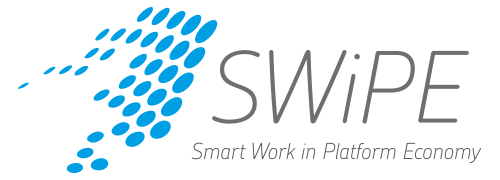
In Mark Twain’s classic stories about Tom Sawyer’s adventures (1876-1896) there is an episode in which our teenage hero has been employed to paint a long wooden fence. For Tom, the task is terribly boring and takes a heavy toll; on such a beautiful summers day he’d much rather go fishing. Soon however, a crowd of children from the neighborhood come to watch Tom at his task. Tom, a genuine American showman, begins his pitch: painting this particular fence is the most important, and yet most fun assignment that he’s proud to have been asked to do. Ignoring the first few requests to take part, only once all children are loudly clamoring to have a go at painting does Tom, reluctantly, relinquish the paint and the brushes and head off.
Why are well-educated, well-to-do people embracing the opportunity to share their home or car, to scrub toilets, carry boxes and furniture to earn a little extra income that they don’t even need? In a recent (2017) study the American sociologist Juliet B. Schor, has uncovered surprising mechanisms in platform work. Her study shows that Airbnb (short term rental of rooms and apartments), TaskRabbit (simple home maintenance and refurbishment tasks) or RelayRides (person to person car rental) only improve the economy of the typical unskilled and low-income service worker marginally. These people quite often lack the necessary resources to earn on the platform economy. They don’t control high grade apartments in city centers nor can they offer for rent a spacious new car. In the platform economy the advantage goes to those with the right property and skills. The attorneys, accountants, and researchers that Schor interviewed were oftentimes happily surprised at the ease of adding to their income.
It’s an odd-looking world where hotel cleaners and removals men are losing their low-income jobs as more and more academics with stable incomes clean and refurbish rooms for Airbnb or move pianos on a task basis. Schor outlines here a mechanism for increasing income inequality, although his narrowly focused qualitative study falls short of providing definite empirical support. But really, is it just greed driving the well-to-do to tough and dirty manual labour? In reality they seem to be under the influence of some kind of digital platform magic – a term Schor doesn’t use. This is about creating an image and a brand. Alongside economic productivity we’re speaking of the latest cool thing; of moving at the forefront of technological development, of sharing, of sustainable development. With the right framing, painting a fence or compost maintenance begin to look like attractive side gigs for architects and professors.
Multidisciplinary disputes about the “true” meanings and definitions of digital platform work and the platform economy aren’t restricted to the US. They extend to Europe and elsewhere. In Amsterdam a conference on “Reshaping Work in the Platform Economy” (19. – 20.10.2017) brilliantly brought together researchers, officials, trade union members, owners and leaders of platforms (Uber, Helpling) as well as gig-economy workers. For example what foes the oft touted “flexibility” of digital platform work actually mean? Older Uber drivers who already have a career behind them are enamored of their new entrepreneurial independence and stable income while younger drivers on the same platform claim that they must always be available – especially late at night on weekends, when rides are most in demand. The difference in the meaning of a Saturday evening to those in their sixties and to those in their twenties does, for its part, contribute to a changing interpretation of platform economy “flexibility”.
In one of the most interesting presentations, Professor Koen Frenken from the University of Utrecht categorized new firms in the platform economy as three-phase institutional entrepreneurs. In the first phase, firms find space in the market place for their business because of an inefficient or underserved market – often because of poor or complicated regulation. In the next phase these companies defend their niche by appealing to the need to keep their algorithms secret, data protection and privacy. The third phase is characterised by the stabilisation of the institutional environment; platform companies lobby at the national level against “unnecessary regulation” and aim to ensure “rational” EU rules for essential information technology. These firms should not be mistaken to represent a monolithic body as they differ in their operational logics (Pure commercial vs. Community oriented sharing vs. family & hobby values) and so have different priorities when it comes to legislation.
Family, religion, and community as traditional social institutions will continue losing significance, but the disruption that the platform economy offers to companies, professions and states is easy to underestimate. Professor Frenken suggests that an algorithm doesn’t just represent a company. Algorithms replace professions as guardians of professional skills (algorithms automatically remove service providers that get poor reviews), undertake tasks such as consumer protection (comprehensive and transparent feedback systems guide users). Professor Frenken’s striking summarization of the platform economy encourages revisiting the relevance and value base of one’s own research.
References:
Schor, Juliet B. (2017) Does the sharing economy increase inequality within the eighty percent?: findings from a qualitative study of platform providers. Cambridge Journal of Regions, Economy and Society, 10, 263–279.
The author, Seppo Poutanen is a Senior Research Fellow with the SWiPE project.
Translation by Marja Rautajoki.
